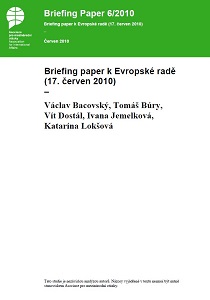
Ukraine 2005-2006: The Empire Strikes Back
Ukrajina 2005-2006: Impérium vrací úder
At the time of the creation of the first version of this post, the colon in the title was followed by a postscript twice into the same river, and it was supposed to be primarily about thinking about how, after all the mistakes made by the forces of the Orange Revolution, it would be possible to create a new Orange government and try to repair that history does not allow so often. However, the "rollover" of the oranges did not end even in the most critical moments, and the result is what it is. A year and a half after the Orange Revolution, the forces that were defeated at the end of 2004 and in whose perspective few believed in the future again claimed power. This did not happen on the basis of some radical change in the nature of these forces that were associated with the former Kuchma regime, but almost exclusively this rebirth of Viktor Yanukovych, the Party of Regions (SRU) and all that is connected with them participated in the policies they pursued the oranges at the time they gained power.
More...


















